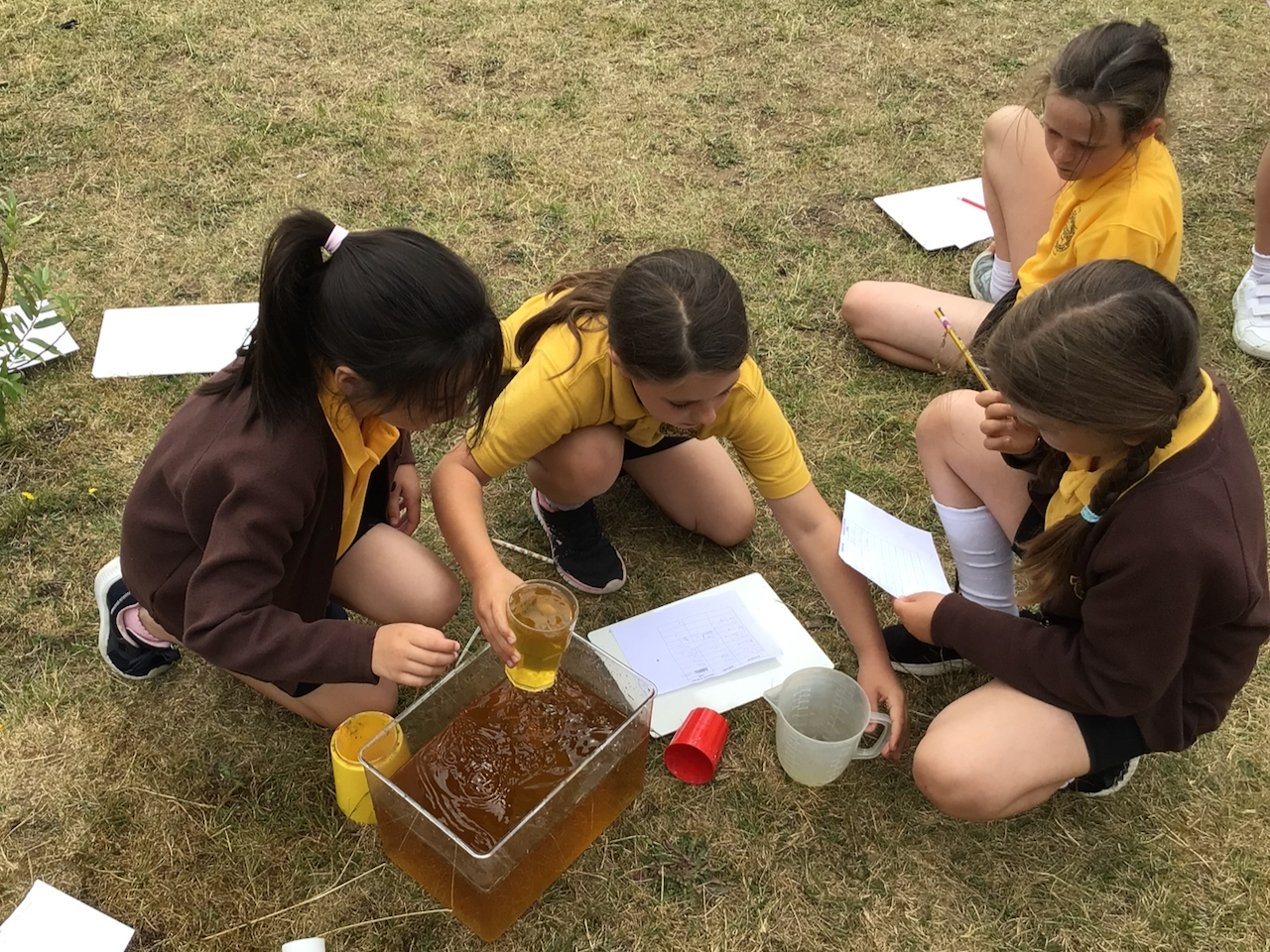Science

Curriculum Intent
At St Mary and All Saints CE Primary School we recognise that Science is a core subject within the National Curriculum and that it stimulates and excites pupil’s curiosity about the world around them and satisfies this curiosity with knowledge. We also recognise that Scientific method is about developing and evaluating explanations through experimental evidence and modelling. Through Science pupils understand how major scientific ideas contribute to technological change – impacting on industry, business and improving quality of life.
Aims
At St Mary and All Saints we aim to:
- Provide every pupil with a motivating Science curriculum that stimulates the child’s natural curiosity and promotes interest and enthusiasm for the world in which we live;
- Encourage each child to acquire and develop scientific processing skills, through planning and carrying out investigations;
- Enable each child to develop their knowledge and understanding of scientific concepts, through exploration and investigation;
- Prepare children for life in an increasingly scientific and technological world and develop an understanding of the relevance of Science in an everyday context;
- Encourage children to develop a caring attitude to the environment and a knowledge and understanding of how to live a healthy life.
Objectives
At St Mary and All Saints we will:
- Structure learning experiences to develop progression in the acquisition of scientific knowledge, understanding, skills and communication techniques through first-hand experiences, experiments and investigations which are suited to each stage of their development as learners;
- Enable the children to communicate and relate Science to everyday life and develop these experiences through scientific investigations and the acquisition of scientific vocabulary;
- Help children to understand that scientific knowledge relies on evidence and that evidence can be obtained in a variety of ways;
- Enable each child to learn safe working methods, safe handling techniques for all tools and equipment, and to show care and attention when working;
- Equip children to select materials required to resource their own planned investigations;
- Develop children’s computing skills through Science.
- Develop scientific knowledge and conceptual understanding through the specific disciplines of biology, chemistry and physics
- Develop understanding of the nature, processes and methods of Science through different types of science enquiries that help them to answer scientific questions about the world around them
- Are equipped with the scientific knowledge required to understand the uses and implications of science, today and for the future
Curriculum Implementation
At St Mary and All Saints CE Primary School, children study Science following our Scheme of Learning, staff have access to Snap Science, which they use as a resource to support teaching. The Science curriculum at St Mary and All Saints follows the programmes of study for the Early Years Foundation Stage (EYFS), KS1 and KS2 and is based on the National Curriculum 2014 for Science. Science is taught as a separate curriculum subject for 1 hour in Key Stage 1 and 2 hours in Key Stage 2 each week. Some teachers choose to block teach Science. Science is covered within ‘The World’ in the EYFS curriculum.
We operate a planning system agreed by the whole staff, based upon programmes of study and statements of attainment. We develop schemes of work and weekly plans which give details of appropriate objectives, activities and outcomes. A range of styles of teaching are necessary in science lessons. Approaches need to be related to the topic itself and to the abilities and expertise of the teachers, and the various learning styles of the children. Each unit of teaching will include some opportunity for science investigation. Lessons include computing as appropriate.
Our teaching at all levels shall include opportunities for:
- Teacher exposition;
- Discussion with teacher and peers;
- Consolidation and practice of techniques;
- Problem-solving;
- First-hand experience;
- Committing facts to memory and recalling a range of scientific facts;
- Making predictions, hypothesising, measuring and the interpretation of results;
- Making meaningful conclusions;
- Recording using diagrams, graphs, charts and models;
- Class work, group work, paired work and individual work.
Cross curricular opportunities
There are many opportunities for cross-curricular study in Science. These include:
English:
- Promoting the skills of reading, writing, speaking and listening.
- Using texts of a scientific nature within English composition.
- Developing oral skills through discussion.
- Developing written skills through recounts and report.
Numeracy:
- Using number, weights and measures in experiments.
- Estimating and predicting results.
- Identifying patterns and trends in results.
- Developing accuracy in observation and recording.
Computing:
- Use of the internet and iPads to support work in class.
- Recording, presenting, analysing and interpreting data.
- Reviewing, modifying and evaluating work and its presentation.
PSHE:
- Discussion of social and moral questions.
- Reflection on the way people treat the things around them
- Specific teaching units on sex education and drugs education
- Developing team/group work skills
- The development of environmental understanding
